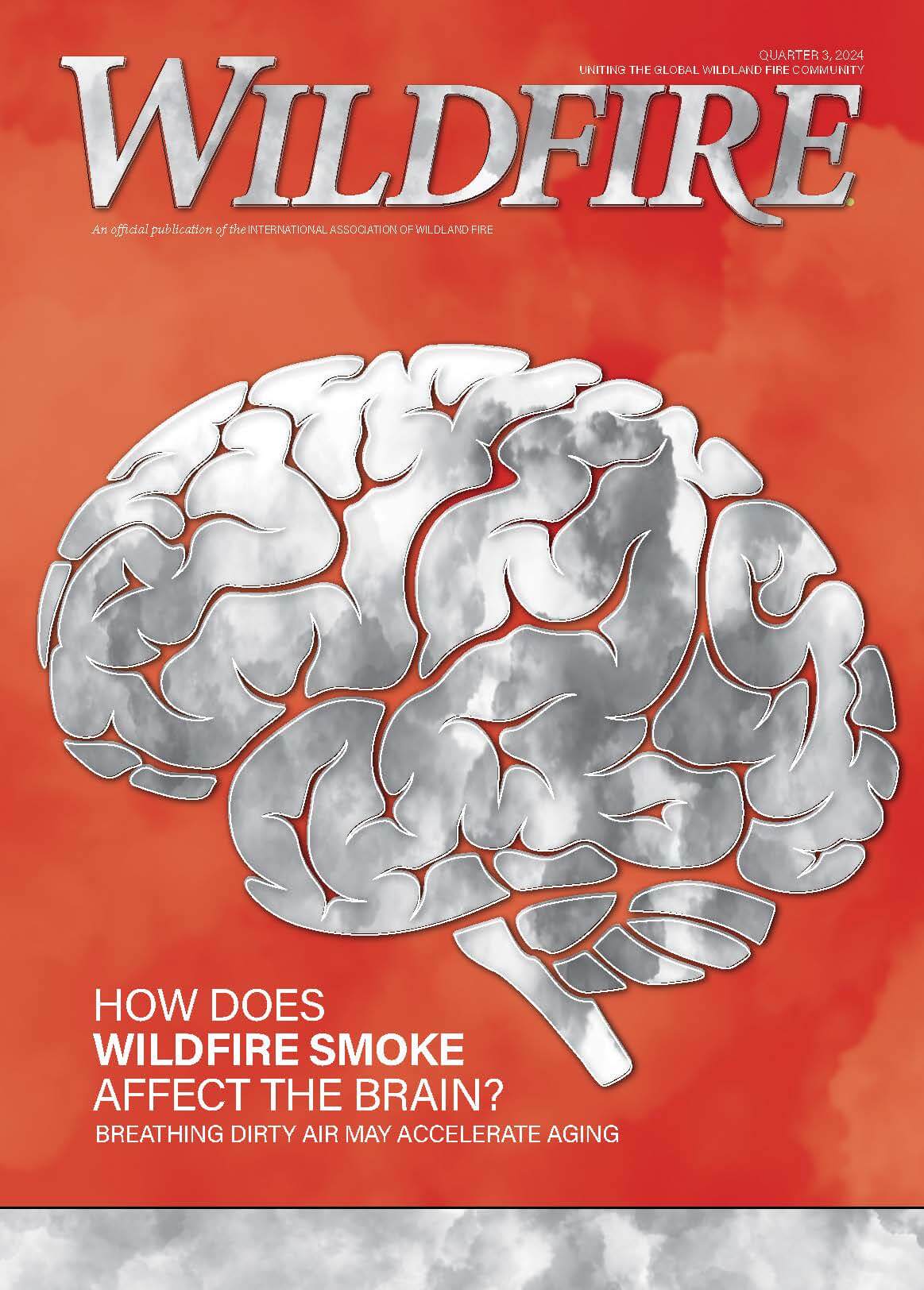
(Editor’s note: We begin a new section in Wildfire Magazine — “Wildfire Issues” — to offer insights, opinions, and key documents to help us understand and engage in the issues that define our profession. And what could be more key to managing fire than understanding it. Yet a proposal now being considered in Congress would cut funding for US wildfire science and research. In response, leaders and leading organizations from the professional wildfire community prepared this testimony to the U.S. Senate and House of Representatives. Look for updates on the outcome of this funding question in future issues. – RS.)
+
From: Association for Fire Ecology, International Association of Wildland Fire, Tall Timbers Research Station and Land Conservancy, The Nature Conservancy
To: U.S. Senate Committee on Appropriations–Interior, Environment, and Related Agencies Subcommittee
RE: USDA-Forest Service funding of the Joint Fire Science Program in FY17 Appropriations
Date: April 15, 2016
JOINT FIRE SCIENCE PROGRAM FUNDING IS VITAL FOR MANAGING WILDFIRES SAFELY AND COST-EFFECTIVELY.
The undersigned leading professional wildland fire organizations in the nation and the world are seriously concerned with the proposed cut and a new funding process for the USDA Forest Service’s (USFS) Joint Fire Science Program (JFSP). The clear current wildfire trend is more acres burned, higher severity, and on more days each year, raising our challenge to apply resources in a wise, science-based manner. We respectfully request that the USFS JFSP be funded at $7 million through the Wildland Fire Management budget. We additionally request that the Department of the Interior Joint Fire Science program be funded at $6 million.
The USFS JFSP has a relatively small budget for a program that successfully yields important results which are directly and widely applied across a broad geographic landscape. These tools and technology products support the fire risk reduction community that help track the effectiveness of Forest Service programs, such as vegetation management and hazardous fuels reduction. Their applied research supports resilient landscapes and communities, and provides key information on wildfire mitigation impacts on water quality, atmospheric emissions, and other natural resources and ecosystem services. We are concerned about the zeroing out of this program under Wildland Fire Management in exchange for funding a smaller portion from the already-constrained Forest & Rangeland Research budget. Restoring the USFS funding mechanism under Wildland Fire Management and ensuring an appropriated level of $7 million would help to address the urgent need to maintain and further important research.
MAINTAINING RESEARCH
The JFSP is a research program that builds on a 15+ year commitment to focusing research questions on the needs and objectives of fire managers. As such, JFSP serves as an independent and vital research arm of the broader efforts to safely and efficiently manage wildland fire on all ownerships. Additionally, JFSP:
- Generates priorities based on the expressed needs of managers and local land units, maximizing their relevance and effectiveness in improving fire management. This need-driven priority focus frees it from alternative priorities and mandates of any individual agency and ensures funded research is directly applicable to managers.
- Draws its strength and relevance from being truly collaborative and interdisciplinary – by engaging federal and university scientists, land/resource managers and multiple stakeholders in advancing the field of fire science. This is vital for a profession in which fire knows no bureaucratic boundaries.
- Serves as an international forum for information and technology exchange particularly important in the face of global climate change.
MORE RESEARCH, NOT LESS
Wildland fire management requires a significant investment from federal agencies, in particular the USFS. Currently, JFSP is only one percent of the total Wildland Fire Management budget. For an agency with approximately half of its budget focused on wildland fire management, it makes fiscal sense to invest in a research program like the JFSP in order to understand the science of fire management, fire prevention, and landscape-scale climate impacts.
With continued and even expanded funds for cutting-edge research, we could expect to pioneer safer and less costly methods to manage fires on public lands, thus earning long-term cost savings.
CURRENT POLICY SUPPORTS RESEARCH
The Federal Wildland Fire Management Policy states as two of the guiding principles:
- “Fire management plans and activities are based upon the best available science.”
- “Knowledge and experience are developed among all wildland fire management agencies. An active fire research program combined with interagency collaboration provides the means to make this available to all fire managers.”
The National Cohesive Wildland Fire Management Strategy states as one of the guiding principles and core values:
- “Fire management decisions are based on the best available science, knowledge, and experience, and used to evaluate risk versus gain.”
Fully funding JFSP is one of the few ways to achieve these goals and sustain scientific and technological innovations that are critical for the vitality of wildland fire management and for expansion of knowledge and skill
We urge you continue to fund the USFS JFSP at $7 million under the Wildland Fire Management budget and additionally the DOI JFSP at $6 million. These levels and funding structures would emphasis Congress’ commitment to the continued development of research tools that have greatly improved our success in managing wildland fire in the past and which are needed even more so in the future.
Dr. Leda Kobziar
President, Association for Fire Ecology
Tom Zimmerman
President, International Association of Wildland Fire
Dr. William Palmer
President/CEO, Tall Timbers Research Station and Land Conservancy
Cecilia Clavet, Senior Policy Advisor on Fire and Forest Restoration, The Nature Conservancy
Contact Person: Dr. Timothy Ingalsbee | 541-852-7903 | [email protected] | P.O.B. 50412, Eugene, OR 97405
